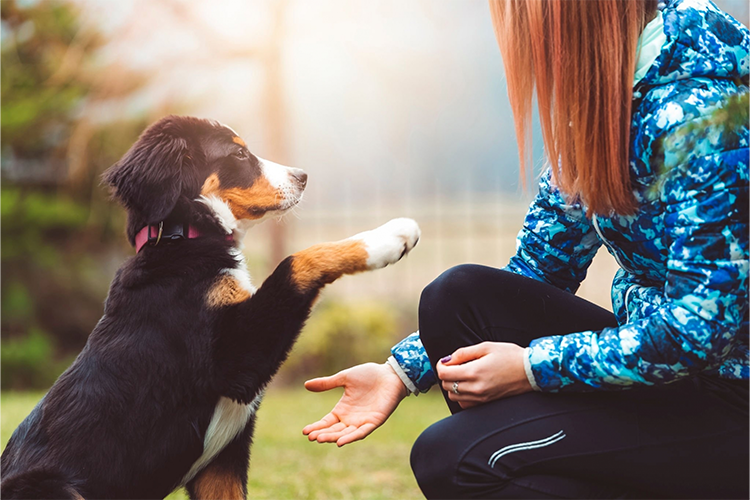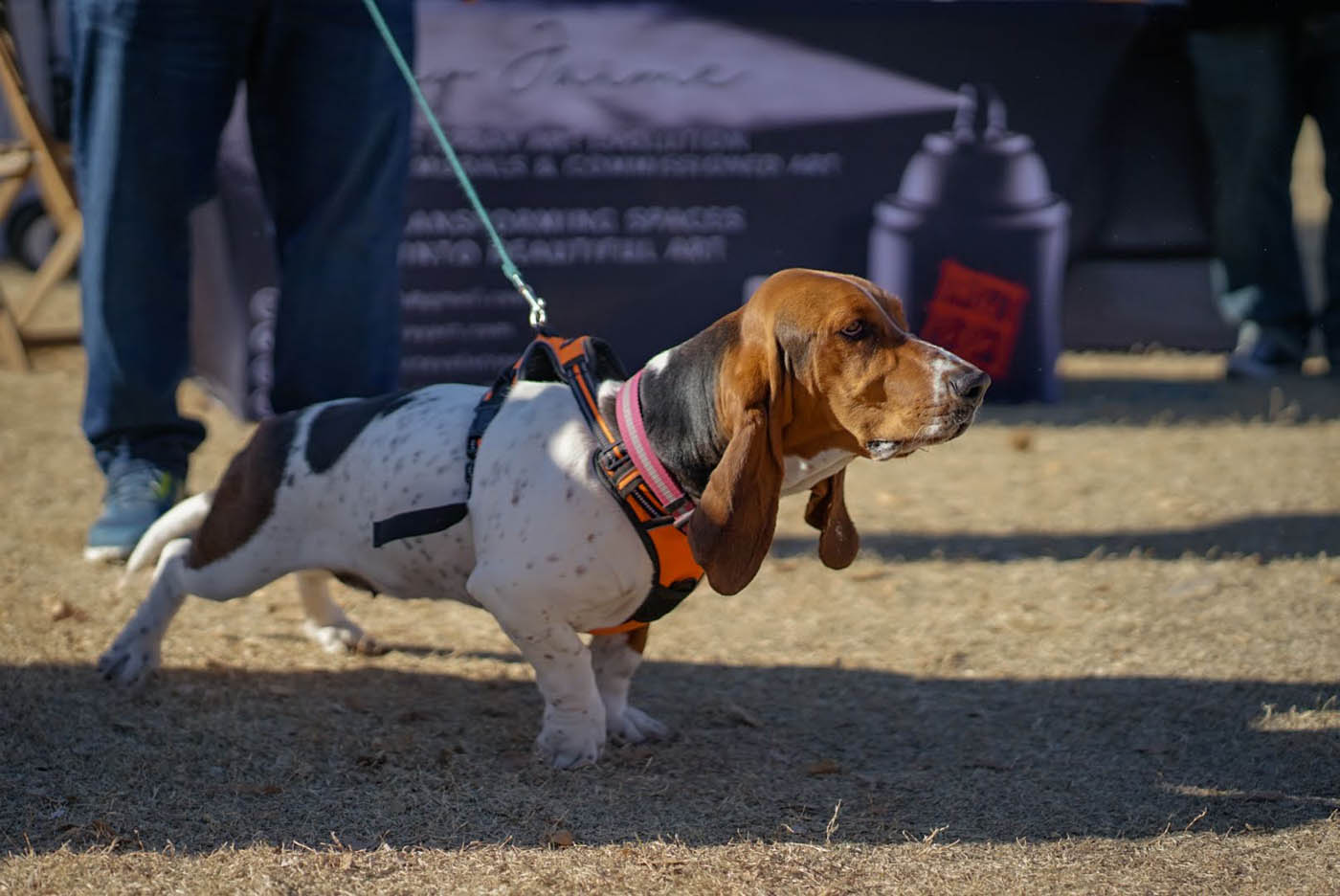Unleash Potential with Dog Training Near Me: Find Your Local Experts
Unlock Your Canine's Prospective: Proven Pet Dog Training Approaches for Success
Effective dog training is a nuanced procedure that hinges on understanding canine actions and using clinically backed strategies. By including positive support, establishing clear commands, and prioritizing socializing, dog proprietors can grow a productive partnership with their animals.
Recognizing Pet Dog Habits
Understanding pet behavior is essential for efficient training and fostering a favorable relationship between dogs and their proprietors. An extensive understanding of canine body language, articulations, and social communications is important for recognizing their emotions and demands. Dogs interact largely through non-verbal signs; as an example, a wagging tail may suggest excitement, while pinned ears can indicate anxiety or submission.

Additionally, environmental elements play a considerable function fit a canine's actions. Adjustments in regular, brand-new surroundings, or the presence of unfamiliar individuals can cause stress and anxiety or stress and anxiety in pets. Recognizing these triggers enables proprietors to alleviate negative reactions and establish appropriate training strategies.
Inevitably, a deep understanding of pet dog habits lays the foundation for effective training techniques, improving both habits and the general bond in between the pet dog and its owner. dog training near me. This knowledge is essential for cultivating a well-adjusted, delighted canine companion
Positive Reinforcement Strategies
Efficient training relies greatly on positive support methods, which have been revealed to generate considerable lead to forming desired actions in pet dogs. This approach includes rewarding a pet for displaying specific actions, thus raising the possibility that these actions will be duplicated. Rewards can take numerous forms, consisting of treats, praise, playthings, or playtime, depending upon what motivates the private pet.

It is crucial to slowly eliminate incentives as the pet dog discovers the behavior, transitioning to recurring support. This technique maintains the actions in time while preventing dependence on continuous benefits. By concentrating on favorable reinforcement, instructors can cultivate a trusting connection with their canines, advertising a cooperative and healthy and balanced training atmosphere that enhances total obedience and efficiency.
Establishing Regular Commands
An essential facet of successful canine training is the establishment of consistent commands. Consistency in commands is crucial for effective interaction between the instructor and the canine. When commands are consistent, canines find out to connect details words with desired actions, which accelerates the training procedure and boosts understanding.
To establish constant commands, it is important that all member of the family utilize the very same terminology and gestures. If one individual uses "sit" while one more claims "sit down," it can create complication for the dog. Select clear, unique words for commands and make certain everyone included in the pet dog's training follows these choices.
Furthermore, repeating is vital. Enhance commands through frequent method, making certain that the dog receives sufficient chances to react appropriately. When a dog successfully follows a command, immediate favorable reinforcement should comply with. This could be in the form of deals with, praise, or playtime, solidifying the link in between the action and the command.
Lastly, be patient. Developing regular commands takes time and these details initiative. With devotion and clearness, you will help your dog create a solid understanding of assumptions, eventually resulting in a well-behaved friend.
Socializing and Exposure
Interacting socially a canine is important for fostering a certain and well-adjusted buddy. This process entails revealing your pet dog to a range of environments, people, and other animals to establish their social abilities and adaptability. Early socializing, ideally in between the ages of three to fourteen weeks, is important, as it lays the groundwork for a pet's future habits.
During socialization, purpose to supply positive experiences in various settings, such as parks, active streets, and homes with various other animals. Present your pet dog to various stimuli, consisting of sounds, views, and smells, making sure that each encounter is fulfilling. This exposure aids reduce anxiety and stress and anxiety, paving the way for a more resistant canine.
Taking part in controlled team play sessions with other pet dogs can also boost social abilities, showing your pet suitable communications and boundaries. Always check your dog's comfort degree throughout these experiences, gradually boosting exposure as their confidence grows. Bear in mind, the objective is to create a well-rounded animal that prospers in varied situations, promoting an unified connection with both people and other pets. Focusing on socialization will substantially add to your dog's overall happiness and habits throughout their life.
Overcoming Common Training Challenges

Pets may have a hard time to concentrate in busy or unfamiliar settings. Progressively desensitize your pet to distractions by starting training in a silent environment and gradually presenting more stimulations as they come to be competent.
Furthermore, behavior concerns like jumping or extreme barking can come to be irritating. Address these by teaching alternative habits, such as resting smoothly when greeting guests. Uniformity and persistence are critical; reinforce preferred actions continually and avoid abuse, which can lead to confusion.
Lastly, recognize that each dog is unique, and training timelines may vary. Dressmaker your approach to your pet's private requirements, and seek professional assistance if required. With perseverance and the best techniques, conquering these challenges can lead to a trained, satisfied canine friend.
Final Thought
To conclude, opening a pet dog's prospective necessitates a comprehensive approach that includes an understanding of canine actions, the application of positive reinforcement strategies, and the facility of constant commands. Early socialization and direct exposure to diverse atmospheres even more enhance a pet's flexibility and confidence. Click Here By addressing usual training obstacles with tailored strategies and perseverance, a participating and harmonious relationship between dog and trainer important source can be fostered, inevitably leading to a well-behaved friend with the ability of thriving in different situations.
Reliable canine training is a nuanced process that pivots on comprehending canine actions and utilizing medically backed methods.Understanding pet dog behavior is crucial for effective training and cultivating a positive connection between pet dogs and their proprietors.Effective training counts greatly on positive support techniques, which have actually been revealed to yield substantial results in shaping preferred behaviors in pet dogs. When commands are consistent, canines find out to connect particular words with wanted habits, which increases the training procedure and boosts understanding.
In final thought, opening a dog's prospective demands a comprehensive technique that includes an understanding of canine behavior, the application of favorable reinforcement strategies, and the establishment of constant commands.